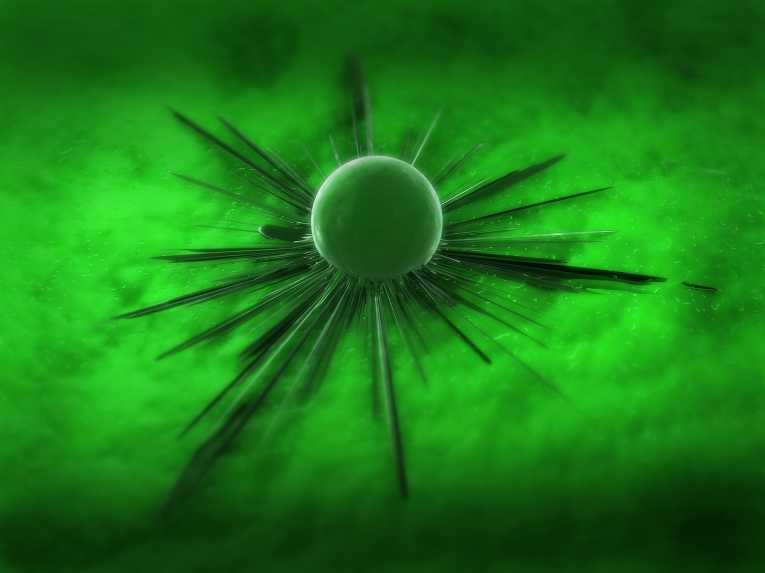Viruses designed to target cells can successfully infect, spread into, and shrink or stabilize cancer cells when delivered into a patient's body intravenously, researchers in Ottawa, Canada, have shown.
Twenty-three advanced-cancer patients who had failed to respond to available treatments were infused with an engineered strain of vaccinia virus. After 8-10 days, biopsies were done. Seven out of eight of those who received the highest dose of the virus showed that the virus had replicated in the cancer cells but not in normal cells. Iot was also found that a foreign gene that was engineered into the virus was expressed. At the same time, the only side effects produced by the virus were mild to moderate flu-like symptoms that lasted less than 24 hours.
Dr. John Bell, a Senior Scientist at the Ottawa Hospital Research Institute and senior co-author of the study, which will be published in Nature, noted in a press release: "this is the first time in medical history that a viral therapy has been shown to consistently and selectively replicate in cancer tissue after intravenous infusion in humans."
He explained that "Intravenous delivery is crucial for cancer treatment because it allows us to target tumours throughout the body as opposed to just those that we can directly inject. The study is also important because it shows that we can use this approach to selectively express foreign genes in tumours, opening the door to a whole new suite of targeted cancer therapies."Also, while this study was done to assess safety and delivery of the virus (identified as JX-594), its anti-tumour activity was also demonstrated. The tumors of six out of eight patients in the two highest dose groups showed shrinking or stabilization.
Dr. Bell, emphasizing the need for more research, said, "But of course, we will need to do more trials to know if this virus can truly make a difference for patients. We are working hard to get these trials started, and at the same time, we are also working in the laboratory to advance our understanding of these viruses and figure out how best to use them."
Other cancer news
In other cancer research, Purdue University engineers have come up with tiny devices that, when implanted in tumors, generate oxygen from the electrolysis of water to increase the effectiveness of cancer treatments.
Babak Ziaie, Purdue University professor, explained: "Hypoxic areas are hard to kill. Pancreatic and cervical cancers are notoriously hypoxic. If you generate oxygen you can increase the effectiveness of radiation therapy and also chemotherapy."
Also, before treatment can begin, the cancer must be detected. To this end, researchers have devised a saliva test that measures the amount of potential carcinogens stuck to a person's DNA.
"The test measures the amount of damaged DNA in a person's body," reported Professor Hauh-Jyun Candy Chen, Ph.D., the leader of the research team at the National Chung Cheng University in Taiwan. She added, "This is very important because such damaged DNA - we call this 'DNA adducts' - is a biomarker that may help doctors diagnose diseases, monitor how effective a treatment is and also recommend things high-risk patients can do to reduce the chances of actually getting a disease." said Chen. The research team is at National Chung Cheng University (NCCU) in Taiwan. "We tried urine and blood and found these adducts. Then we turned our attention to saliva. It's much more convenient to collect a sample of saliva."
Top Image Credit: 3d rendered close up of a growing cancer cell © Eraxion










